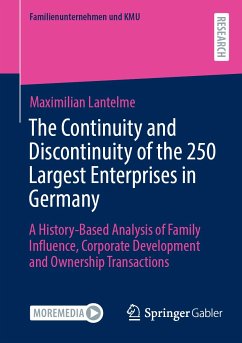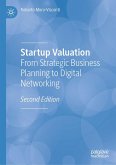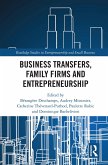This book studies the long-term development of the 250 largest family and non-family enterprises in Germany between 1958 and 2018. In particular, the continuities and discontinuities of the companies’ ownership structure, operations and solvency are examined. Historical methods are used to advance the understanding of the attributed long-term orientation of family firms in family business research. The collected data of the 250 largest enterprises of 1958 provide the most comprehensive historical overview of the industrial landscape of this period. The long-term analyses show that more than half of the companies fail and less than a quarter keeps their ownership structure in the observation period of 60 years. In this timeframe, family-owned businesses have relatively stable ownership structures and superior survival rates compared to public companies although the latter experience higher growth rates. A listing of a family firm leads to the discontinuity of the family’s majority ownership in the mid- to long-term. Furthermore, company types like foundation-owned enterprises and foreign subsidiaries show even higher survival rates. The book closes with practical implications based on the identified development patterns of the surviving and failed enterprises.
Bitte wählen Sie Ihr Anliegen aus.
Rechnungen
Retourenschein anfordern
Bestellstatus
Storno









